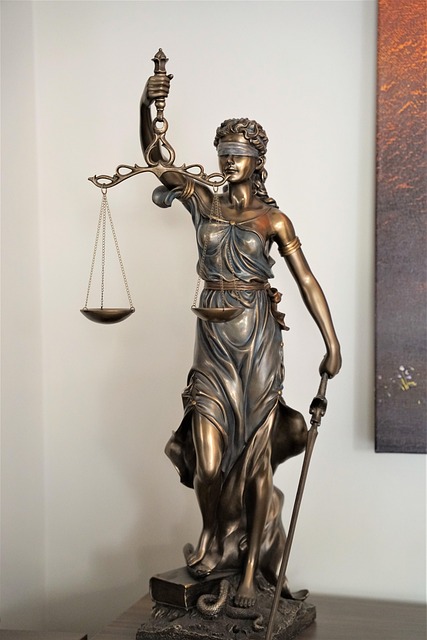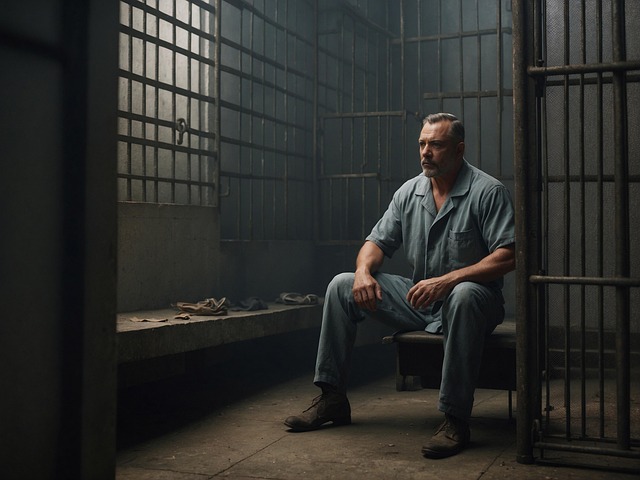Criminal Defense Attorneys navigate complex criminal justice systems, utilizing strategic expertise to interpret laws and build defenses from various evidence like physical clues, witness testimonies, forensic reports, and digital data (Examples of Evidence in Criminal Trials). They scrutinize prosecutor evidence, explore alternative interpretations, and craft narratives that humanize the accused, aiming to mitigate or overturn charges through circumstantial evidence and impactful tactics. Engaging experienced legal counsel enhances chances of favorable verdicts for both corporate and individual clients.
Criminal Defense Attorneys play a pivotal role in ensuring justice and protecting individuals accused of crimes. Understanding their multifaceted role is crucial for navigating the complex criminal justice system. This article delves into the essence of these attorneys, exploring how they build robust defenses using various evidence types. From examining tangible to circumstantial proof, we uncover effective strategies that lead to successful outcomes. We’ll provide real-world examples highlighting the profound impact skilled defense can have on criminal trials, emphasizing the importance of thorough case preparation and advocacy.
- Understanding the Role of Criminal Defense Attorneys
- Building a Strong Case: Types of Evidence
- Effective Strategies in Presenting Defense
- Examples of Successful Defenses and Their Impact
Understanding the Role of Criminal Defense Attorneys

Criminal Defense Attorneys play a pivotal role in navigating the complex legal system, especially during criminal trials. Their primary responsibility is to protect the rights of individuals accused of crimes and ensure they receive a fair trial. These attorneys are adept at interpreting laws and regulations, providing crucial strategic guidance, and constructing robust defenses. They challenge the prosecution’s case by examining evidence, cross-examining witnesses, and leveraging legal loopholes or procedural errors to avoid indictment.
Understanding the presentation of evidence is key in criminal defense. Examples of evidence in criminal trials include physical clues, witness testimonies, forensic reports, and digital data. Defense attorneys analyze these to build a compelling narrative that counters the prosecution’s case. Whether dealing with white-collar and economic crimes or addressing concerns within philanthropic and political communities, these professionals must possess a deep understanding of legal intricacies and be adept at presenting alternative interpretations of evidence, thereby potentially mitigating or even overturning charges.
Building a Strong Case: Types of Evidence

Building a strong case for criminal defense begins with understanding the types of evidence that can be presented in court. Examples of evidence in criminal trials include witness testimonies, physical objects found at the scene, forensic analyses, and documents related to the case. These pieces of evidence are crucial throughout all stages of the investigative and enforcement process, from gathering facts to presenting a compelling argument.
For corporate and individual clients alike, having experienced legal counsel can make all the difference in winning challenging defense verdicts. By expertly navigating the complexities of evidence collection and presentation, attorneys ensure that their clients’ rights are protected and that every possible defense is explored. This strategic approach not only strengthens the case but also demonstrates a thorough understanding of the law and its application.
Effective Strategies in Presenting Defense

In presenting a defense, Criminal Defense Attorneys employ a multifaceted approach, tailoring strategies to each unique case. One effective method is to scrutinize the evidence presented by prosecutors, challenging its validity and relevance. This involves questioning witness testimonies, examining physical evidence for any inconsistencies or manipulation, and exploring alternative interpretations of forensic results. For instance, in white-collar and economic crimes cases, attorneys might delve into the methods used to gather financial records, raising concerns about privacy violations or inaccurate data collection practices. By presenting compelling counter-arguments and alternative scenarios, defense lawyers can create reasonable doubts in the jury’s minds, ultimately aiming to achieve an acquittal or reduced sentence for their clients.
Additionally, constructing a robust defense narrative that resonates with both the judge and jury is paramount. Attorneys must craft a story that not only refutes the charges but also humanizes the accused, appealing to the emotional and logical aspects of the audience. This strategy often involves sharing personal stories and highlighting the client’s contributions to their community, particularly relevant when dealing with corporate or individual clients from diverse backgrounds. By connecting with the philanthropic and political communities, defense attorneys can demonstrate a broader understanding of their client’s character, further reinforcing the argument that the alleged crimes do not represent their true nature.
Examples of Successful Defenses and Their Impact

In criminal defense, attorneys often turn to a variety of strategies and examples of evidence to mount successful defenses. Among the most impactful are cases where circumstantial evidence plays a pivotal role. For instance, a defendant’s alibi can be verified through testimonies from friends, family, or colleagues, providing a reasonable doubt that they were at the scene of the crime. Another powerful tool is expert testimony; forensics experts can offer insights into whether evidence was handled properly, potentially undermining its admissibility.
Furthermore, defense attorneys may leverage historical data and statistical analysis to demonstrate an unprecedented track record of successful acquittals or reduced charges. Across the country, these lawyers have defended clients in diverse cases, often navigating complex legal landscapes with nuanced strategies that resonate within both philanthropic and political communities. The impact of such defenses extends beyond individual outcomes, setting precedents and challenging common perceptions about criminal justice.
Criminal defense attorneys play a pivotal role in ensuring fairness within the criminal justice system. By understanding their unique responsibilities, building robust cases centered around compelling evidence, and employing effective presentation strategies, these legal professionals can significantly impact outcomes. The examples of successful defenses highlighted throughout this article underscore the power of thorough preparation and a relentless commitment to protecting an individual’s rights. When faced with strong evidence in criminal trials, skilled defense attorneys serve as a critical check on potential miscarriages of justice.






